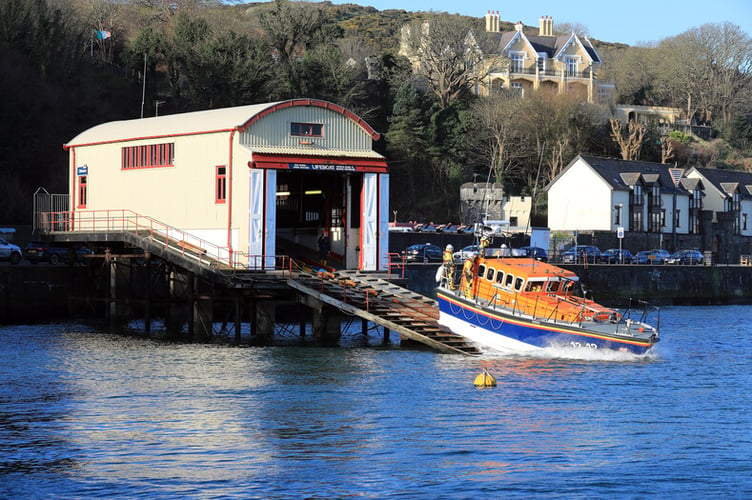The Royal National Lifeboat Institution (RNLI) celebrated its 200th anniversary on Monday.
Since the charity was founded in the island back in 1824 by Sir William Hillary, its volunteer crews across the Isle of Man’s five lifeboat stations have launched 3,154 times, saving 1,665 lives.
In total across the British Isles and Ireland, 146,452 lives have been saved by the RNLI – this equates to an average of two lives saved every day for 200 years.
During the 200-year lifesaving history, crews at Douglas Lifeboat Station have launched 667 times and saved 348 lives.
At Peel Lifeboat Station they have launched 557 times and saved 254 lives.
Volunteers at Port Erin Lifeboat Station have launched 436 times and saved 119 lives.
Port St Mary’s lifeboat volunteers have launched 804 times and saved 293 lives and at Ramsey Lifeboat Station the crew have launched 690 times and saved 651 lives.
RNLI heritage archive and research manager Hayley Whiting says: ‘The RNLI’s founder, Sir William Hillary, witnessed the treacherous nature of the sea first-hand when living in the Isle of Man and he wanted to take action.
‘His first appeal to the nation in 1823 did not have the desired result but, thankfully, he persevered and gained the support of several philanthropic members of society, who put their names to the charity at a meeting in the City of London Tavern on 4 March 1824.
‘Twelve resolutions were passed at that meeting, the core of which still stand as part of the RNLI’s Charter 200 years later. This shows how the RNLI’s values and purpose have remained unwavering for 200 years, despite the social and economic changes and challenges of the past two centuries.
‘Hillary’s vision was ambitious and forward-thinking, and no doubt he would be extremely proud to see the charity he founded still going strong today, and to see how much it has achieved.’

-(2).jpeg?width=209&height=140&crop=209:145,smart&quality=75)
.jpeg?width=209&height=140&crop=209:145,smart&quality=75)


Comments
This article has no comments yet. Be the first to leave a comment.